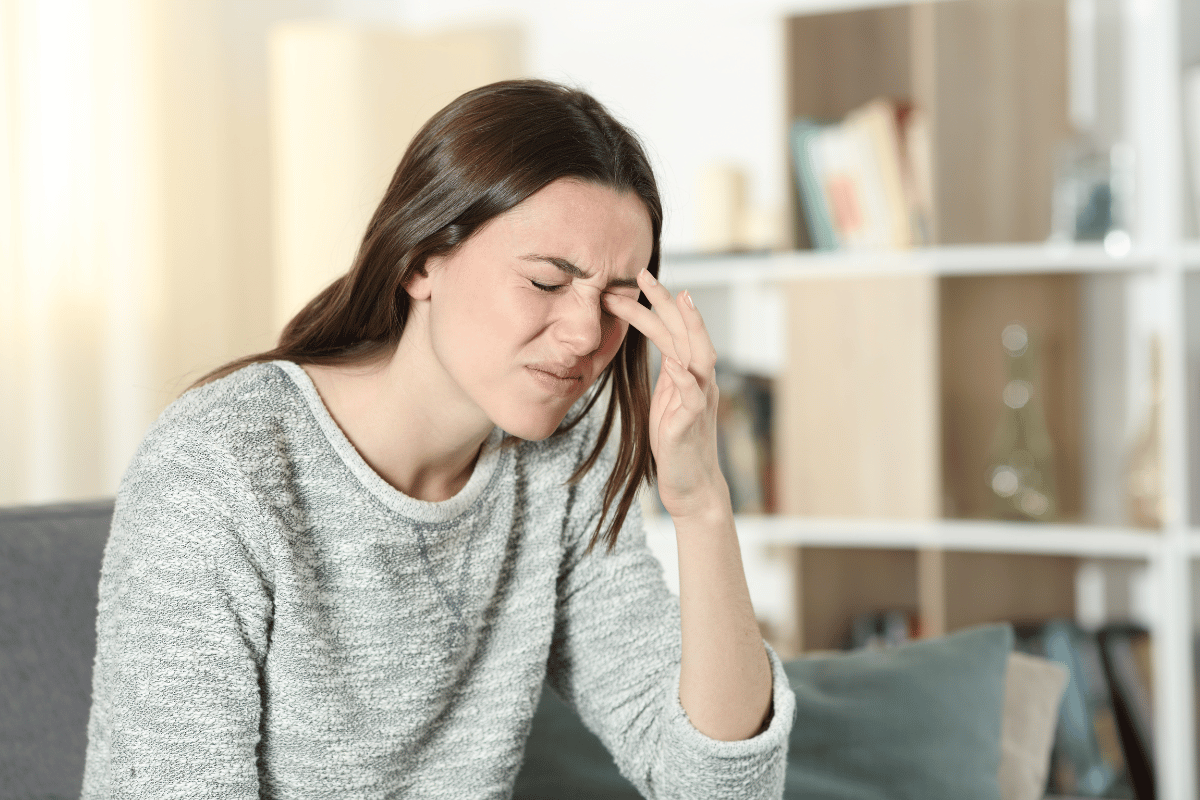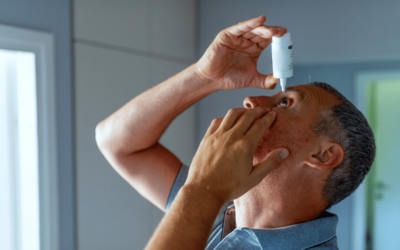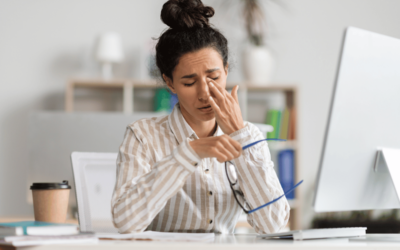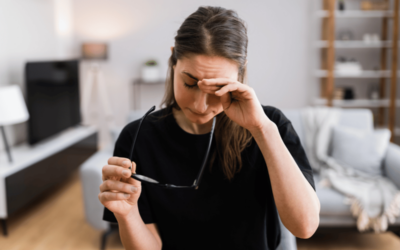Are your eyes feeling dry and uncomfortable? Maybe you’re constantly reaching for eye drops during the day, or you feel like there’s something stuck in your eye. You may be suffering from a condition known as dry eye syndrome. While dry eye may seem like a minor inconvenience, it can lead to more severe issues or even affect your vision if left untreated. Let’s explore the causes and symptoms of dry eyes so you can better understand how to manage this uncomfortable condition.
Dry eye symptoms
Symptoms of dry eyes can vary from person to person but may include redness, itching, a burning sensation, light sensitivity, blurry vision, and a gritty feeling in your eyes. Many people also notice eye strain or that symptoms worsen late in the day.
Common causes of dry eyes
Environmental factors
One of the most common causes of dry eyes is exposure to environmental factors such as wind, smoke, or dry air. Spending long hours in front of a computer screen can also contribute to dry eye symptoms because you tend to blink less when staring at screens. Additionally, living in a hot climate like Louisiana can cause dry eye or make it worse. It’s important to take breaks while working on screens and use artificial tears to keep your eyes lubricated.
Aging
As we age, our bodies produce fewer tears, increasing our risk of dry eyes. If you are experiencing dry eye symptoms and are over the age of 50, it may be time to schedule an eye exam with one of our experienced optometrists in Denham Springs.
Gender
Women have an increased risk of developing dry eyes due to hormonal changes during pregnancy or menopause. Using oral contraceptives can also contribute to dry eye symptoms.
Medical conditions
People with diabetes, rheumatoid arthritis, and thyroid disorders are more likely to have dry eye symptoms. Also, problems with your eyelids (such as blepharitis or inflammation of the eyelids) can result in dry eyes.
Medications
Some medications like antihistamines, decongestants, blood pressure medicines, or antidepressants can cause dry eye as a side effect. If you’re taking any of these medications and experiencing dry eye symptoms, ask your healthcare provider about possible alternatives.
How to treat dry eyes
For most people with mild or occasional dry eye, it’s enough to regularly use over-the-counter eye drops, also known as artificial tears. Your eyes may also feel better if you make simple lifestyle changes such as using a humidifier to add moisture to dry air or taking regular breaks from screens. It’s also important to drink plenty of water, avoid smoke, wind, and air conditioning, and wear protective eyewear outside on windy days.
If your dry eye doesn’t improve with home remedies, our dry eye specialists in Denham Springs offer advanced treatment options such as OptiLight IPL therapy. While artificial tears can provide temporary relief in many cases, they don’t treat the root cause of dry eye. OptiLight IPL therapy uses gentle pulses of light to address dry eye caused by meibomian gland dysfunction—one of the most common causes of dry eye.
The meibomian glands in your eyelids produce an oil called meibum that makes up an important part of your tears. When these glands get clogged, they can no longer produce enough oil to keep your tears from evaporating too quickly. OptiLight targets inflammation in the meibomian glands and helps restore their function by unclogging blocked glands, providing significant relief from dry eye symptoms.
If you’re experiencing persistent symptoms of dry eyes such as irritation or blurry vision, don’t ignore them. Seeking treatment early can help prevent further complications and improve your overall quality of life. Remember that regular visits to your eye doctor are essential for maintaining good eye health and catching any issues before they escalate. So, if you’re in the Denham Springs, Louisiana area and need expert care for your dry eyes or any other vision concerns, schedule an appointment at Louisiana Eye Care today!



